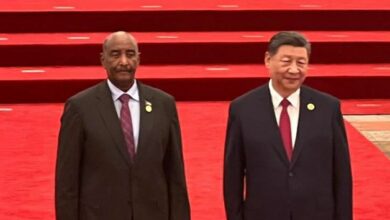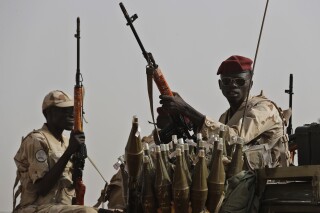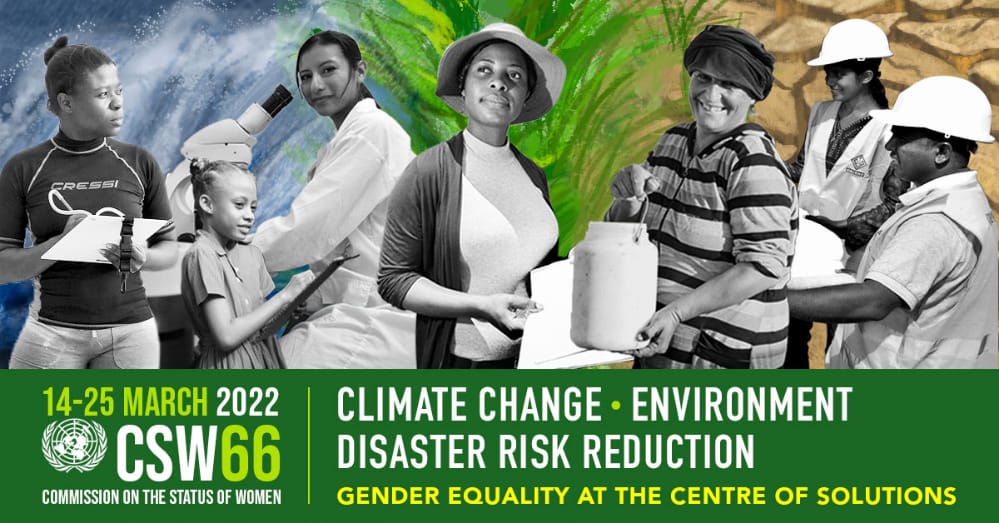
Sudan Participates in 66th Session of the Status of Women Commission, New York
“Achieving Gender Equality and the Empowerment of all Women and Girls”

Haffiya Abdalla
The sixty-sixth session of the Commission on the Status of Women is from the 14th to the 25th of March 2022.
The priority theme: Achieving gender equality and the empowerment of all women and girls in the context of climate change, environmental and disaster risk reduction policies and programs;
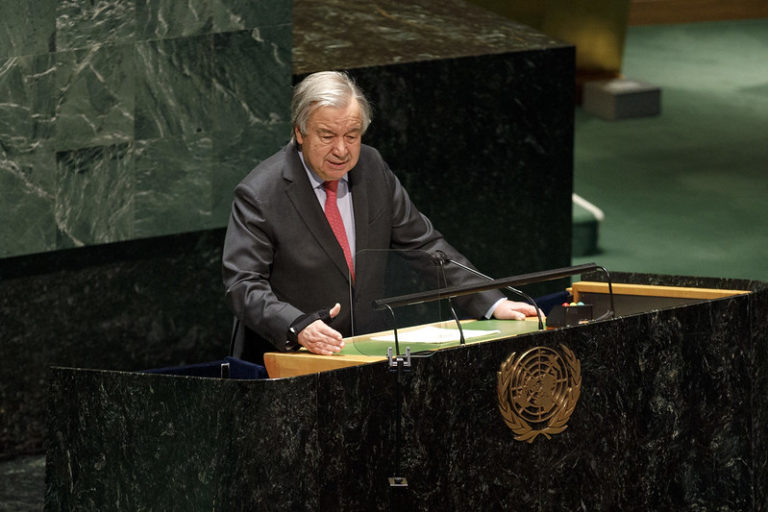
The Bureau of the Commission plays a crucial role in facilitating the preparation for, and in ensuring the successful outcome of the annual sessions of the Commission. Bureau members serve for two years. In 2002, to improve its work and ensure continuity, the Commission decided to hold the first meeting of its subsequent session, immediately following the closure of the regular session, for the sole purpose of electing the new Chairperson and other members of the Bureau (ECOSOC decision 2002/234)
Sudan Minister of Social Development, Ahmed Adam Bakheet, head of the Sudan delegation participated in the Sixty-Sixth session of the Commission the Status of Women accompanied by the Director of the General Administration of Women at the Ministry of Social Development, and Dr. Maryam Ali Ahmed, Director of the Department of Legislation and Laws in the General Administration for Women.
The Minister mentioned in his speech that Sudan is witnessing remarkable progress to improve the situation of women while the world is witnessing wars, conflicts, environmental phenomena, and health risks, especially women issues in the various fields, including COVID-19, and there is no doubt that all these conditions and issues negatively affect the situation of women, which requires strengthening teamwork mechanisms and enhancing cooperation. In addition to Sudan’s commitment to the international and regional conventions ratified by Sudan, including Agenda 2930, Agenda 2063 Africa, the Declaration of Gender Equality, and the Mobutu Protocol.
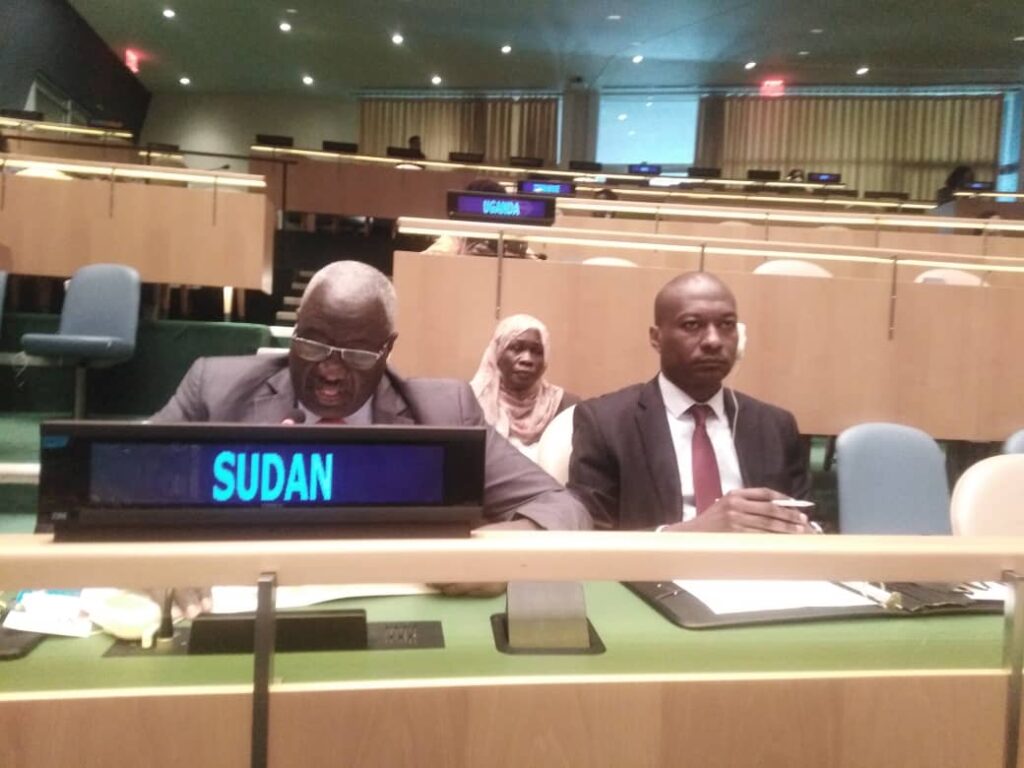
The statement of Sudan stated that the topic before the 66th session (Achieving gender equality and empowering all women and girls in the context of policies and programs related to climate change, environment, and disaster risk reduction) allows for further reflection on the challenges facing countries in achieving the goals of sustainable development.
The Minister stressed that Sudan is one of the first countries that gave women the chance to enter the parliament and gained the right to vote in 1956, and within the framework of the Mother Council’s plan 1325, Sudan approved the national plan 2325, and achieved gender equality, put a plan to confront climate change in several axes, including cooperation with the international community in preserving the quality of the environment.
Sudan has ratified several international and regional agreements on the environment and climate change. Sudan is also committed to protecting women and girls from gender-based violence.
The Minister affirmed the fulfillment of international and regional obligations in gender equality in the formulation of climate change and environmental adaptation, as well as protecting the participation of women in decision-making and policy development related to the environment, climate change, and disaster risk reduction, through the implementation of international and regional partnership frameworks and in cooperation with stakeholders.
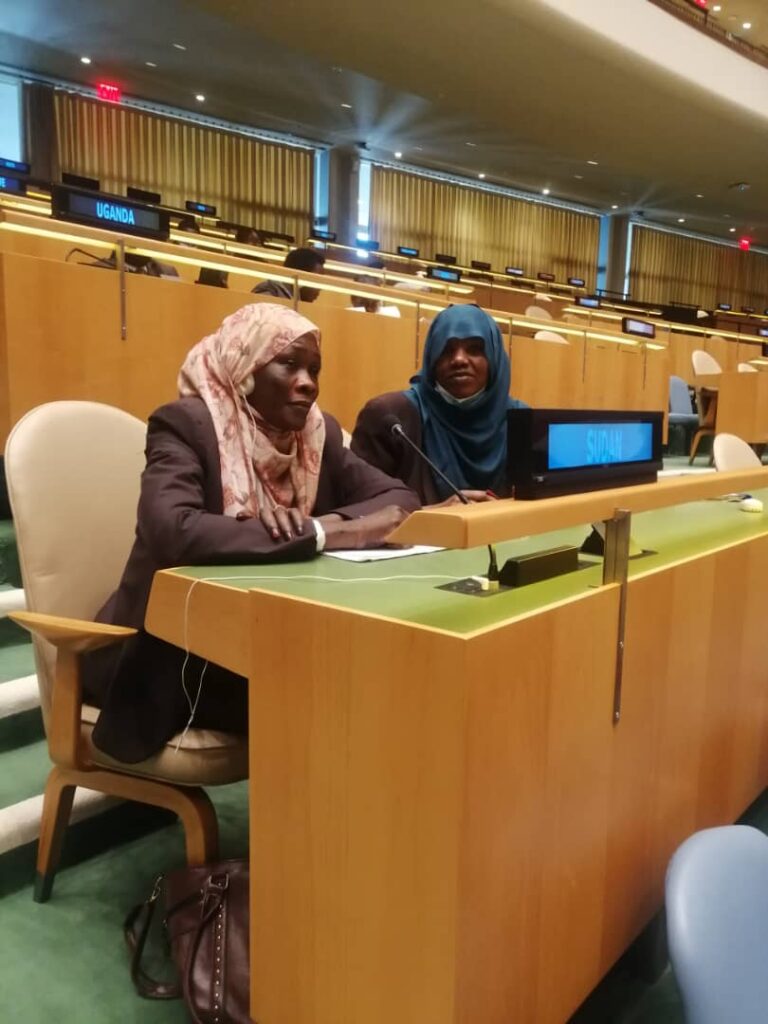
It is worth noting that the Commission on the Status of Women (CSW) is the principal global intergovernmental body exclusively dedicated to the promotion of gender equality and the empowerment of women. A functional commission of the Economic and Social Council (ECOSOC), was established by ECOSOC resolution 11(II) of 21 June 1946.
UN Women supports all aspects of the Commission’s work. We also facilitate the participation of civil society representatives.
The Commission adopts multi-year programs of work to appraise progress and make further recommendations to accelerate the implementation of the Platform for Action. These recommendations take the form of negotiated agreed conclusions on a priority theme. The Commission also contributes to the follow-up to the 2030 Agenda for Sustainable Development to accelerate the realization of gender equality and the empowerment of women.

